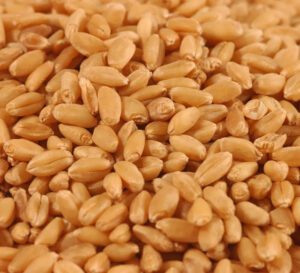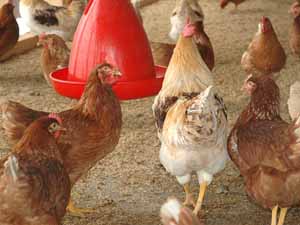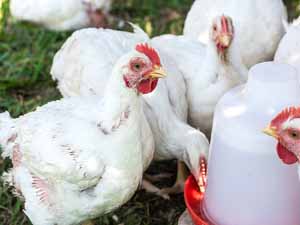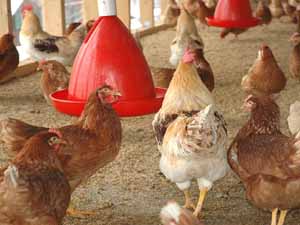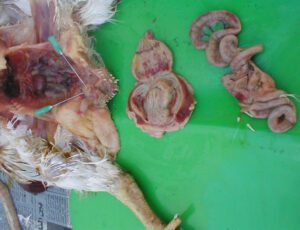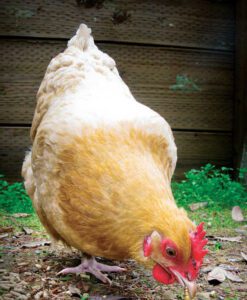Poultry rearing is a very old and traditional occupation. People are raising different types of poultry birds such as ducks, chickens, turkeys and many more from the ancient time.
Keeping different types of poultry is very easy and simple. And you can keep poultry birds even if you are a beginner. However, here we are trying to describe more information about keeping poultry.
What Is Poultry Rearing?
Poultry rearing is actually the practice of breeding and raising domesticated poultry birds, such as ducks, chickens, pigeons, geese, turkeys etc. These birds are raised for many different purposes such as meat, eggs, and some other products. Poultry keeping is a widely practiced throughout the world.
It can be a highly profitable venture mainly due to the high market demand and value of poultry products in the market. It also contributes to the availability of affordable animal protein through eggs and meat. And commercial production provides livelihoods for farmers and many workers run rural areas.
How To Start Poultry Rearing?
Starting commercial poultry farming business can be a difficult task. But it is very easy and simple to start a small scale poultry keeping business. With proper planning, management, and care, you can make this business highly profitable.
First of all, decide on the type of products you want to produce from your poultry farm. Poultry birds are typically raised for their eggs, meat, or in some cases both eggs and meat. You can also keep some poultry birds for breeding purpose.
Then make a good business plan. Select a suitable location for your farm, and then make a good and secure poultry house with the availability of required facilities. Choose the right poultry breed for your production depending upon your production purpose.
Purchase required equipment and supplies depending upon the number of your birds. Always try to feed your birds with very good quality and nutritious food. Providing very good quality food is very important, because good food helps them to stay healthy and active.
Perform regular health checkups and always implement strong biosecurity practices for preventing disease outbreaks. Vaccinate your birds timely and keep good contact with a vet in your area. Clean your poultry house on a regular basis, and ensure proper drainage system to avoid wet conditions in the housing environment.
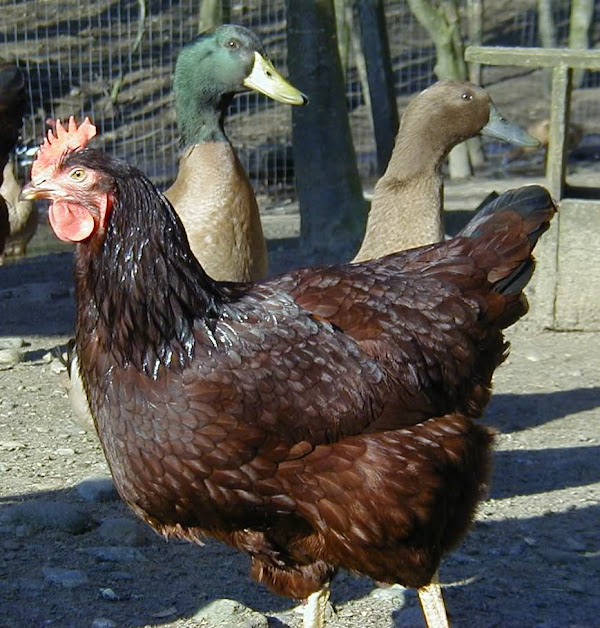
Poultry Rearing Methods
Poultry rearing can be done in various methods, depending on the scale of the operation, available resources etc. Here we are shortly describing about some poultry rearing methods.
Cage System: Mostly the egg laying chickens are raised in this system. These cages are typically made of wire mesh and are stacked in tiers to maximize space. This method is helpful in efficient use of space in large-scale operations. It is easier to feed, water, and collect eggs in this system. And it is also easier to monitor individual birds for health. But due to the confined space, the birds may be stressed, and the initial cost is high for cage setup.
Deep Litter System: In this system, the poultry birds are kept in a large floor area covered with some easily available bedding material such as straw, sawdust, or rice husk. In deep litter system, the bedding absorbs manure, and the birds are free to move around inside the house. Setup cost of this system is relatively less, but require more space and labor for cleaning.
Free-Range System: In this system, the poultry birds are allowed to roam outdoors freely during the day. But they also have a shelter or coop to stay at night. Free-range poultry rearing system provides the birds with access to fresh air, grass, and insects. Large land area is required in this system, and there are greater risk of predation.
Organic Poultry Farming: Organic poultry farming is a method where birds are raised without the use of synthetic chemicals, hormones, or antibiotics. In this system, the poultry birds are feed and given access to outdoor areas for foraging. In this system, the poultry birds produce healthier meat and eggs, as the birds are not exposed to chemicals and antibiotics. But the system has higher production costs, and has increased risk of disease due to the lack of antibiotics.
Intensive Poultry Farming: Intensive poultry farming involves raising poultry birds in confined space. Large numbers of poultry birds are raised in this system with controlled conditions, such as temperature, humidity, light etc. This system provides high output with efficient use of space and resources.
Poultry Rearing Equipment
Like many other livestock farming business, you will also need some equipment for successful poultry rearing. Although, exact requirements of the poultry equipment depends on the type of poultry, and the system you raise them. Some most common and must have poultry keeping equipment are:
- Poultry cages
- Coops and shelters
- Nesting boxes
- Feeders
- Waterer
- Fans
- Heaters
- Exhaust fans and inlets
- Brooder boxes
- Heat lamps or infrared bulbs
- Chick feeders and drinkers
- Egg trays
- Vaccination equipment
- Waste management equipment
- Lighting systems
- Transport equipment
- Monitoring and control systems
All these equipment are not a mandatory. You can add some more or ignore some depending on your requirements and farming system.
Feeding Quality Foods
Feeding the poultry birds with very good quality and nutritious food is the most important part of poultry keeping business. Because good quality and nutritious food not only help the birds to stay healthy and active, but also help them to produce more. So, always try to feed your birds with very good quality and nutritious food depending on their demand.
Feed the birds with starter feed initially for the first few weeks. Then feed them grower poultry feeds. And switch to layer poultry feed when the birds start laying (provide finisher feed if you are raising broiler poultry birds. Along with providing them with enough nutritious food, always try to provide them with clean and fresh drinking water as per their demand.
Health Management
Good health management system is a must for keeping your birds healthy and active. Monitor their health on a regular basis, and provide required medications. Also vaccinate your birds timely. Keep good contact with a vet in your area and call her/him as soon as possible if you notice anything uncommon.
Breeding
This is optional, and you can ignore this part if you want to keep poultry for just food production. But you have to be ready for this if you want to sell chicks and breeding pairs. Keeping good ratio of males and female poultry birds in your flock will ensure better breeding results.
Backyard Poultry Rearing
Backyard poultry farming means raising poultry birds such as chickens, ducks, turkeys, or geese at your hope for the purpose of eggs or meat production, or just for fun. Backyard poultry rearing is a traditional practice. And in this system, a few birds are kept in the backyard, rather than running a large commercial farm.
Frequently Asked Questions (FAQs)
People often ask several questions regarding poultry rearing. Here we have listed the most common and frequently asked questions about this business and tried to answer them. Hope this guide will help you. Don’t hesitate to ask if you have more questions.
What is rearing in poultry?
Rearing in poultry means raising and taking care of birds like chickens, ducks, or turkeys for the purpose of eggs or meat production. The rearing tasks involves providing them with food, water, shelter, and adequate health care.
How can poultry rearing improve nutrition in schools?
Poultry rearing in schools can provide the students with fresh eggs and meat. Both eggs and meat are rich in proteins, vitamins, and minerals. It helps to improve the diet of students and can also be a very good source of some additional income to support school meals.
How to rear poultry?
Rearing poultry is very easy and simple if you start in small scale. Provide the birds with a very clean and safe environment, offer enough good and nutritious food, and always try to take good care of them.
How to rear poultry layers?
Rearing layer poultry is very easy and simple. Provide them with a very good and secure housing space, provide them enough nutritious food and clean water for drinking, offer them layer feed which is especially formulated for the layer chickens for maximum eggs production. Vaccinate them timely and always try to take very good care of them.

